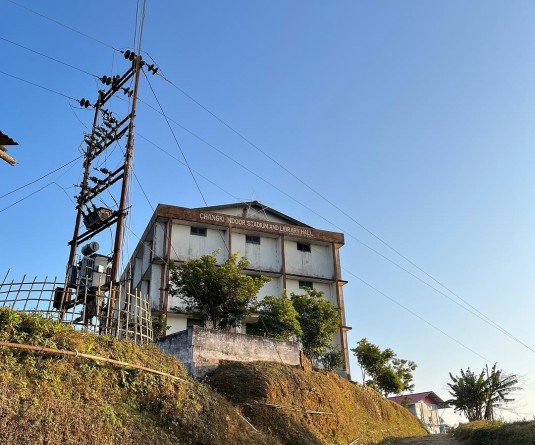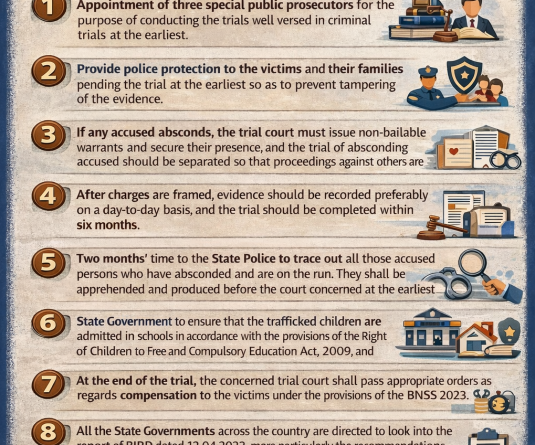The National Human Rights Commission (NHRC) delegation meeting with various NGOs in Kohima on April 24. (Morung Photo)
National Human Rights Commission conducts open hearing in Kohima
Morung Express News
Kohima | April 24
Nagaland State DGP, LL Doungel, today stated that “Nagaland was not born as a measure of a goodwill gesture of India to have a separate identifiable community, but it was born out of a struggle which was violent in nature.”
“Which is why it is only real and possible that there will also be human rights violation because the birth of Nagaland also came with a good deal of violence, and we still carry this legacy,” said the state’s top cop, during the visit of the National Human Rights Commission (NHRC) to Kohima on April 24.
An open hearing and ‘camp sitting’ was held at the ATI Kohima, where eight cases—on issues relating to atrocities and problems faced by scheduled castes and scheduled tribes—were heard. An inaugural session was also held with Justice D. Murugesan, Member, NHRC, as the Chief Guest
Doungel, while addressing the vote of thanks, delineated the complexities of human rights violations in Nagaland where disputes are settled amicably in most cases, without realizing that the course of disputes and aberrations are in fact violations - ‘violations which are not termed so’.
Nagaland Chief Secretary Pankaj Kumar, IAS in his address highlighted the history of Nagaland which was created in 1963 as a result of a political agreement following insurgency and deployment of armed forces.
“However the grant of Statehood did not end the insurgency,” said Kumar, citing the atrocities committed and the abrogation of ceasefire and the agreements that followed. Kumar also apprised the NHRC of the disputes over territories among the neighbouring tribes, especially in multi-tribal districts such as Tuensang and Kiphire, which result in law and order incidents. Another fault line is the Assam-Nagaland border.
Highlighting the works and contribution of the NHRC towards promoting the culture of human rights in India, Justice D. Murugesan stated that the NHRC’s focus has increased and expanded to various issues which is not just confined to political and civil justice but economic and social justices such as health, food, education as well as displacement due to natural and man-made calamities.
In the course of the various visits, open hearings and ‘camp sittings’ held throughout the entire country, the Commission and its Special Rapporteurs have also detected several areas in which efforts are required to improve the situation of human rights within the country. “The experiences of the Human Rights Commission shows that most of the violations are from the government and its machineries,” stated Justice D. Murugesan.
Taking cognizance of the uniqueness of Naga society with its various tribes, each with its unique set of socio-economic needs as well as human rights challenges, the Commission underscored the need for effective implementation of key socio-economic flagship programs of the Government to ensure the wellbeing of the marginalized.
“There is a close connection between the proper implementation of these socio-economic schemes and programs and the wellbeing of people and protection of their human rights,” stated Murugesan. He also cited the endeavor of the Commission to promote the culture of human rights by pressing for the introduction of human rights education in the school and university curricula besides sensitization of police personnel on human rights issues.
“The NHRC firmly believes that human rights defenders and civil society are crucial allies in the fight to preserve and promote the inalienable rights of the citizens since they play a vital role in fighting discrimination, investigating violations, and helping victims gain justice and support,” he asserted. Murugesan hoped that the open hearing will be vital in strengthening the partnership between public officials, NGOs, media and the NHRC in the pursuit of their shared, common objective to better protect human rights of the people of the State.
Terming the visit and hearing as ‘an extension of justice to the doorstep of the people’, Murugesan expected a positive outcome which will be instrumental in giving voice to the marginalized and provide relief and justice.
Open Hearing
With the objective to dispose of pending cases on human rights issues in Nagaland, the open hearing and ‘camp sitting’ was held with the participation of NGOs and government officials. The hearing was held to sensitize senior government officers about the importance of human rights issues and compliance of NHRC recommendations, to meet the local NGOs to get an insight into the problems being faced by the people and to interact with media for wider dissemination of information about the outcome.
The bench headed by Justice D Murugesan heard eight cases including two pending cases with the commission and six complaints on the grievances of the persons belonging to scheduled tribes. In the case of recovery of decomposed bodies of nine people in Dimapur District in January 2014, the Commission was informed by the Commissioner (Home) that Rs One lakh each has been paid as ex gratia to the next kin of the deceased. The Commission also expressed anguish in the case in which 58 huts of encroachments in Intangki National Park were burnt down by police during eviction.
The hearing also witnessed the NHRC questioning the senior government officials including the Chief Secretary and Home Commissioner in delaying the investigation of cases, functioning of government activities, implementations of schemes especially on food security and health sector.
After the open hearing, separate meetings were held with the NGOs, and senior officers. In the senior officers meeting, the members raised the issue of effective implementation of welfare schemes of Central Government and State Government which have relevance to the Human rights of people. These included availability of food, employment, health and education facilities.
While interacting with the NGOs, the Commission apprised them about its activities and exhorted them to take up the cause of human rights and approach the Commission with their complaints regarding cases of human rights violation.
Murugesan lauded the participation of NGOs which he mentioned as huge compared to other Hearings in the country. However, there were also disappointments among NGOs over limited time to express the numerous issues and problems on human rights violations in Nagaland.
A press conference was also held after the meetings, where the Commission briefed the media on the Open hearing. The Justice expressed disappointment over the absence Radhakanta Tripathy at the Hearing, who had filed seven cases among the eight cases to the NHRC. A major concern was the negligence in the health sector in Nagaland.
During the Hearing, Chief Secretary Pankaj Kumar also announced that the State Human Rights Commission will soon be set up with its office building currently under construction, which is expected to be completed in two years.





